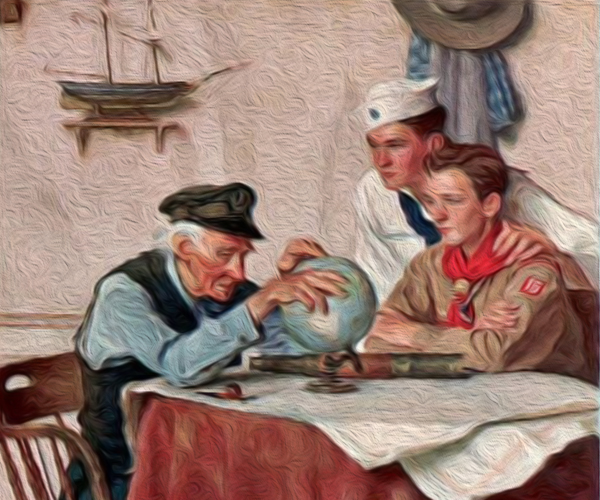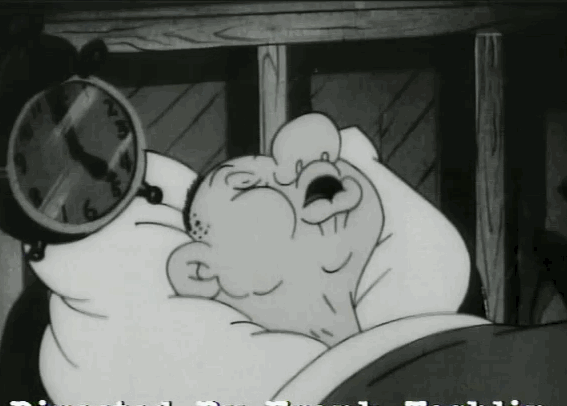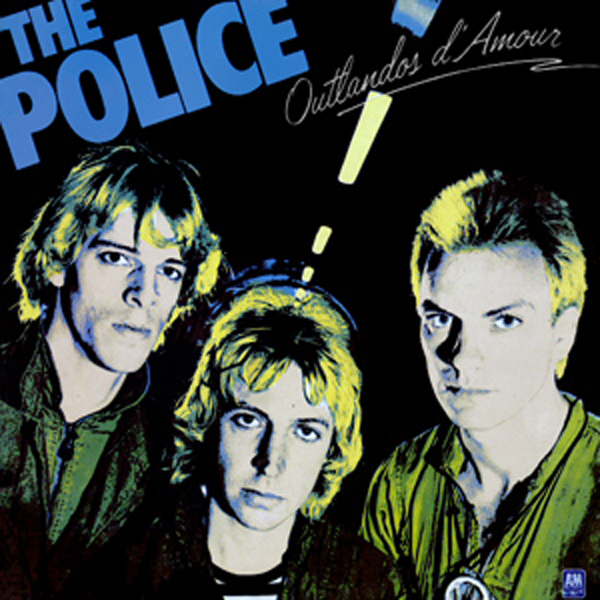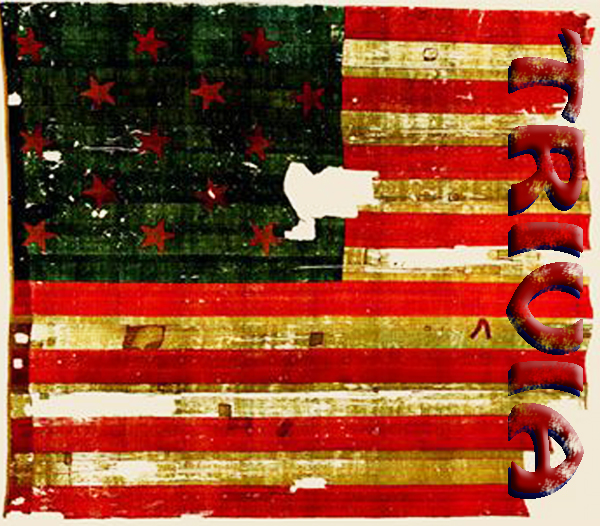
The Mesoamerican Long Count calendar reaches the date 13.0.0.0.0 on December 21, 2012
The Mesoamerican Long Count calendar reaches the date 13.0.0.0.0: For years there was speculation that on December 21, 2012, the world as we know it would end. Some predicted that we’d be wiped out by a natural disaster like a giant tidal wave, an Earth-wide earthquake or a tremendous volcanic eruption. Others believed that on that day in December, the Earth would collide with a mysterious “Planet X”, causing magnetic pole shifts, gravitational reversals or a black hole so big that our solar system would simply disappear. What’s more, believers said that this news was not really news at all; on the contrary, they argued, we have known about the coming apocalypse since the ancient Maya predicted and recorded it on their Long Count calendar more than 2,200 years ago.
The Ancient Maya
Of course, there is no concrete evidence that the Maya–a diverse group of indigenous people who lived in parts of present-day Mexico, Belize, Guatemala, El Salvador and northwestern Honduras from about 2000 B.C.–could truly predict the future. They did, however, develop one of the most sophisticated and complex civilizations in the Western Hemisphere. They figured out how to grow corn, beans, squash and cassava in sometimes-inhospitable places; how to build elaborate cities without modern machinery; how to communicate with one another using one of the world’s first written languages; and how to measure time using not one but two complicated calendar systems.
The Calendar Round
The first Mayan calendar, known as the Calendar Round system, was based on two overlapping annual cycles: a 260-day sacred year and a 365-day secular year that named 18 months with 20 days each. (Five “unlucky” unnamed days were tacked on at year’s end.) Under this system, each day was assigned four pieces of identifying information: a day number and day name in the sacred calendar and a day number and month name in the secular calendar. Every 52 years counted as a single interval, or Calendar Round, and after each interval the calendar would reset itself like a clock.
The Long Count Calendar
Because the Calendar Round measured time in an endless loop, it was a bad way to fix events in an absolute chronology or in relationship to one another over a long period. For this job, a priest working in about 236 B.C. devised another system: a calendar that he called the Long Count. The Long Count system identified each day by counting forward from a fixed date in the distant past. (In the early 20th century, scholars found that this “base date” was August 11 or August 13, 3114 BC.) It grouped days into sets, or cycles, as follows:baktun (144,000 days), k’atun (7,200 days), tun (360 days), uinal or winal (20 days) and kin (one day). (So, for example, a date that was exactly 144,000 days from the calendar’s base date would be called 1.0.0.0.0, for 1 baktun, 0 k’atun, 0 tun, 0 uinal and 0 kin.)
The Long Count calendar worked the same way that the Calendar Round did–it cycled through one interval after another–but its interval, known as a “Grand Cycle”, was much longer. One Grand Cycle was equal to 13 baktuns, or about 5,139 solar years.
The End of the World?
The Maya who developed the Long Count calendar believed the end of one cycle would simply signal the beginning of another. According to this logic, a new Grand Cycle would start on December 22, 2012. However, some people in the U.S. and Europe came to believe that the calendar would not reset itself. Instead, they said, the end of the cycle would bring the end of the world. Some of these doomsayers claimed that there was a scientific explanation for their prediction: On December 21, they said, the winter solstice and the Milky Way’s equator would align. For their part, scientists pointed out that the coincidence of these two events would actually have no effect on the Earth–and furthermore, without 20th-century radio telescopes the Maya could not have known that the galactic equator even existed, much less where it would be in 2,000 years. Other prognosticators had more outlandish theories. Some believed that the Maya were following extraterrestrial instructions when they developed their calendar, for instance, while others fear that aliens would use the Long Count calendar to time their takeover of our planet. Either way, this vision of the future was an unpleasant one, combining Biblical plagues like fires and floods with more cinematic catastrophes like planetary collisions, extreme global warming and mass extinction, and explosions large and small.
Today, there are more than 6 million Maya in Mexico and Central America. Very few of them are expecting Armageddon much less in 2012. In fact, scholars say that Mayan communities call the end-of-the-world stories “gringo inventions”.
History Channel / Wikipedia / Encyclopedia Britannica / Smithonian.edu / Live Science
/ Mayan calendar (YouTube)” 

Understanding Military Terminology - Military engagement
(DOD) Routine contact and interaction between individuals or elements of the Armed Forces of the United States and those of another nation’s armed forces, or foreign and domestic civilian authorities or agencies to build trust and confidence, share information, coordinate mutual activities, and maintain influence.
Joint Publications (JP 3-0) Military Deception - Joint Forces Staff College)

The Old Salt’s Corner
Sailor's Christmas
Twas the night before Christmas a calm night at sea,
We nestled in our racks for a Holiday Routine.
When from the ventilation there came such a clatter,
We jumped from our bunks to see what's the matter.
When from the vent fell this big dust covered dude,
He was dressed up in red with a bad attitude.
Yelling, “Those ducts are all filthy!” as he brushed off his clothes,
“Don't just damn stand there, where's the DCPO?”
He arose from the deck, then he peered all around,
Then from his mouth came a bellowing sound.
”This berthing's a disgrace!” then he called us by name,
“Now Boatswain, Now Corpsman, please explain!”
This was not the Santa I remembered from youth,
He smelled of cheap whiskey, he was rough and uncouth.
”Now, look here you bastards” he said as he strolled,
“You'd best trice this place up, or you'll get nothing but coal!”
“You'll make this space pretty, military, and neat!”
Then he looked down at our boots that lay right near his feat.
”Well, what do we have here?” he said with a frown,
“Who the hell polished these? Recruit 'Buster brown'?!”
He walked around slowly, he missed not a mark.
He even spotted dust bunnies, right there in the dark!
”You've got high dust and low dust, and that overhead it needs cleaning!”
We all stood dumbfounded as his words kept on streaming.
“Which man here is senior!?” Then asked St Nick,
“You'd better shit me and answer…and SHIT ME ONE QUICK!”
The First Class stepped forward, his heart pounding hard,
“Now look right here shitbirds, this asshole's in charge!”
“These racks will be tight! This damn deck it will shine!
I don't want to hear bitching! I need not hear you whine!”
So we gathered our foxtales, our buckets, and swabs,
We all worked all in silence to finish the job.
It took almost an hour finish our space,
He just sat drinking coffee and stuffing his face.
Then on re-inspection he explained with a huff,
“Now this is more like it! Now you’re not so screwed up!”
We all stood there smiling, awaiting our gifts,
But Santa just snapped out “What's the matter dumb-shits!?”
“Get back to your racks! This will be my last warning!
Just like on shore, the gifts come in the morning!”
It seemed like eternity until reveille sounded,
We threw back our curtains as all our hearts pounded.
But what were our gifts? For what did we suffer?
A pallet of rags and a shiny new buffer!
Attached to our new buffer, we found a short note,
We all gathered 'round to see what he wrote.
“Next year at Christmas, best have all your shit wired!”
Signed:
Fair Winds
S.C. Clause
BMCM (Retired)
A Sailor's Christmas - Jimmy Buffett 

“I’m Just Sayin”
“The amount of mechanical development will always be in inverse ratio to the number of slaves that happen to be at a country’s disposal.”
~ Van Loon's Law.

“Thought for the Day”
“If the grass is greener on the other side
it’s probably getting better care.”
~ Earl Nightingale

“What I Have Learned”
“Love yourself, so others love you.
Believe in yourself, so others believe in you.
Respect yourself, so others respect you.
In short,
he way you treat yourself
sets the standards for others.”
~ Anonymous

Bizarre News (we couldn’t make up stuff this good – real news story)

'It didn't really hurt': Peshtigo man's heart pierced in nail gun accident.
PESHTIGO, Wisconsin - A Peshtigo man who accidentally shot a nail into his heart is sharing his story, and some advice to those in the construction industry.
Doug Bergeson was working on a fireplace for a home he's building near Peshtigo when his nail gun went off and a nail pierced his heart.
Bergeson underwent open heart surgery to remove the nail.
“Made my whole family so nervous... and [yelling to his wife, Donna]: I'm sorry about that! But, accidents happen”, Doug said.
Doug's wife, Donna, was at church the day of the accident. Doug was working to finish framing up the fireplace on the home.
“I was just bringing the nail gun forward and I was on my tip-toes and I just didn't quite have enough room, and it fired before I was really ready for it, and then it dropped down and it fired again”, Bergeson recalls.
A three-and-a-half inch framing nail fired straight into his heart with the speed of a .22 bullet.
“t didn't really hurt. It just felt like it kind of stung me. And I looked down and I didn't see anything and I put my hand there and... That's not good”, Bergeson says. “When I saw it moving with my heart, it's kind of like... I'm not going to get anything done today! I can see that already!”
Instead of calling 911, Doug washed up and hopped in his truck.
“Accidents, they can happen so quickly, and fortunately this one had a good ending”, Bergeson says.
Green Bay WBAY-TV (08/14/2017) 

Mr. Answer Man Please Tell Us: How Much Does the Moon Weigh?
The mass of the moon, which might be what you mean to ask, is approximately 7.3476× 10^22 kilograms.
Weight is directly related to mass, but it’s not the same thing as mass (even through we call units of weight and mass by the same names). Weight is the force exerted by gravity against a body resting against a larger mass. The moon is in freefall—in orbit—so it doesn’t weigh anything. If it were placed on the surface of the Earth, it would weigh about 7.3476 × 10^22 kilograms—but only for a moment. Then it would collapse under its own weight and become a rather disastrous pimple on the Earth until it broke through the crust.
That would be a bad day.
But fortunately, there is no realistic way that could ever happen. The moon is in orbit, which means it’s falling toward Earth (which is why it doesn’t “feel” our gravity—it’s weightless), but it’s also coasting away into space such that for every meter it falls toward us, it moves far enough for Earth’s surface to curve away one meter. Therefore, like any orbiting body, it goes round and round and round.
This weight versus mass thing confuses a lot of folks because in colloquial English we use pounds and kilograms for both measurements of weight and mass. That is because we figured all this stuff out on Earth, where it was simple and practical to measure mass by measuring weight.
In other words, because we are earthlings, we define units of mass as equal to the observed units of weight as measured on Earth.
Cornell.edu
• NASA
• Quara
• Space.com
• Wikipedia
• How Much Does the Moon Weigh? (YouTube Search) 


NAVSPEAK aka U.S. Navy Slang
Rate Grabber: Enlisted member with the goal of (and succeeding in) making rate (promotion) quickly.
Rating: Refers to an Enlisted man's job description, i.e. Radioman, Electronic's Technician, etc., usually denoted as part of the rank insignia, found in the center of the rank device on the summer, and winter uniforms only.
RATT Shop: lace for flight deck personnel to cool off in the AC and take a nap while they get their “RATT” fixed.
Rats: Short for “mid-rats”.


Just for you MARINE
Snow Job: Misleading or grossly exaggerated report; sales talk.
Snuffie or Snuffy: Junior Marine, Lance Corporal and below.
SOC or (SOC): Special Operations Capable used in conjunction with MEU written as MEU (SOC).
SOG: Sergeant of the Guard – The acting Sergeant (or near rank) Commanding the 'COG' Corporal of the Guard and all other marines for watch, radio watch, and/or post.

Naval Aviation Squadron Nicknames
VAW-124 - “Bear Aces”
CVW-8 - FRS Naval Station Norfolk, Virginia - Established September 1, 1967

Where Did That Saying Come From?

“Kick the bucket” Meaning: To die.
Origin: When a cow was killed at a slaughterhouse, a bucket was placed under it while it was positioned on a pulley.
Sometimes the animal’s legs would kick during the adjustment of the rope and it would literally kick the bucket before being killed.
The link between buckets and death was made by at least 1785, when the phrase was defined in Grose’s Dictionary of the Vulgar Tongue:
“To kick the bucket, to die.”
One theory as to why, albeit with little evidence to support it, is that the phrase originates from the notion that people hanged themselves by standing on a bucket with a noose around their neck and then kicking the bucket away. There are no citations that relate the phrase to suicide and, in any case, why a bucket? Whenever I've needed something to stand on I can't recall ever opting for a bucket. This theory doesn't stand up any better than the supposed buckets did.
The mist begins to clear with the fact that in 16th century England bucket had an additional meaning (and in some parts it still has), that is, a beam or yoke used to hang or carry items. The term may have been introduced into English from the French trébuchet - meaning a balance, or buque - meaning a yoke. That meaning of bucket was referred to in Peter Levins' Manipulus vocabulorum. A dictionarie of English and Latine wordes, 1570:
“A Bucket, beame, tollo.”
Tand was used by Shakespeare in Henry IV Part II, 1597:
“Swifter then he that gibbets on the Brewers Bucket.”
[to gibbet meant to hang]
Phrases.org UK

Science & Technology

Watch a World War II Training Cartoon Voiced by Mel Blanc
• Meet China's Blackhawk Helicopter, the 'Copyhawk' - The Harbin Z-20 looks like the Blackhawk, and that's no coincidence
• Facebook's Nude Photo Scheme Is a Bad Version of a Good Idea
• 25 Things Every DIYer Should Own
• Fighter Jets Could Be Packing Lasers by 2021
• These Noise-Canceling Earmuffs Will Save Your Hearing While You Work
• The First Interstellar Object Ever Found Now Has a Name: 'Oumuamua
Popular Mechanics

The Strange, Mysterious or Downright Weird

A bizarre flicker of light from space led to the discovery of a still-mysterious star called KIC 8462852, otherwise known as “Tabby's Star”, “Boyajian's Star” or the star surrounded by an “alien megastructure”.
The star and its weird flicker have been generating headlines since 2015, when the object was first observed. That year, the Kepler Space Telescope, which trails Earth as the planet orbits the sun, was looking for Earth-like planets around thousands of stars when it spotted KIC 8462852.
Ordinarily, a planet that passes in front of a star dims the light reaching Earth from that star, a small dip that recurs at regular intervals. KIC 8462852 didn't have that sort of dimming. For starters, the star dimmed more than it would if a planet were passing in front of it; planets might cut a star's brightness by 1 percent if they are huge, like Jupiter. KIC 8462852's light dipped by up to 22 percent. On top of that, the pattern of changes wasn't regular, as it would be if a planet were passing in front of the star.
There are several ideas about what the source of the brightness changes could be. Explanations include fragments of comets, a Saturn-like ringed planet or an asteroid field produced as a planet disintegrates. Generally, astronomers don't think it's aliens. And lately, some researchers have proposed that it is an irregularly shaped dust cloud.
Live Science (11/08/2017) 


SONG FACTS

“Roxanne” - The Police
Album: Outlandos d'Amour
Released 1978 
This song is about a man who falls in love with a prostitute. Sting got the idea after walking through the red-light district of Paris when the band was in town to play a club called The Nashville, where he saw prostitutes for the first time. He imagined what it would be like to fall in love with one of them, figuring some of them must have boyfriends.
The intro to the song contains one of the great happy accidents in rock history. There was an upright piano in the studio, which Sting sat on thinking the lid was closed. Tape was rolling for his vocal, so the sound of his butt hitting the piano and his subsequent laughter were recorded. These sounds were mixed into the intro, providing a unique texture.
Police guitarist Andy Summers made a key contribution to this song. In our interview with Summers, he explained: “'Roxanne' is so identified by that guitar at the beginning - the first verse before he starts singing. It's immediately identifiable.”
This was the first major-label release by The Police, who were struggling at the time. A year earlier, they released the single “Fall Out”  on an independent label owned by Stewart Copeland's brother (and the band's manager), Miles. It was a flop, and the group felt a lot of pressure to produce something that would keep them off the dole.
on an independent label owned by Stewart Copeland's brother (and the band's manager), Miles. It was a flop, and the group felt a lot of pressure to produce something that would keep them off the dole.
When they convened at Surrey Sound Studios outside of London in January 1978, they recorded the song with producer Nigel Gray, who owned the studio. Sting liked the song but didn't think it would be a hit, as it was far more brooding than their other material. Miles Copeland thought differently - he was far more impressed with "Roxanne" than with anything else they recorded at those sessions, and insisted it be the single. Miles got a distribution deal for the song with A&M Records, getting no advance, only royalties from sales.
The song was released in the UK on April 7, but didn't garner much attention. It was also largely ignored in the U.S. when it was released there on February 24, 1979, but The Police soldiered on with a tour of America anyway. When a disc jockey in Austin stared playing the song, it got a great response and other radio stations added it to their playlists. The song became a minor hit, peaking at #32 on April 28. The song also got some attention in the UK around this time, and it made #12 about a year after it was first released.
The original sheet of lyrics for this song is decorated with Sting's random doodles, most dealing with the passage of time. They are “three clocks - one at five to four, another at ten past six, and one sidelong that looks to be showing eight o'clock - a sundial, an hourglass, five sets of five-bar gates that prisoners use to mark the passing of days, some kind of whirlwind vortex spinning in the top right-hand corner, and a spear or an arrowhead. I imagine I was drawing these as I was listening back to various takes of the vocals, but I don't know what they mean”, Sting wrote in Lyrics By Sting. (These illustrations can be seen on the back cover of the book).
Sting official website - Andy Summers official website / Billboard / All Music / Song Facts / Ultimate Classic Rock / Wikipedia
Image: “Outlandos d'Amour (album)” by The Police

Trivia
As a result of patriotism during the Gulf War, in 1991 Whitney Houston had an unlikely musical hit when she recorded the STAR SPANGLED BANNER.
In Florence, Italy, 25-year old artist Michelangelo complete the 5 meter (17 feet) tall masterpiece statue of David in 1504.
At the end of the film, The Wizard of Oz, Dorothy clicks her heels and recites the five-word phrase “There's No Place Like Home!”
A Test for People Who Know Everything
From the Jeopardy Archives Category - “THINGS TO DO BEFORE” ($800):
“'Useful books before going on "Jeopardy!" include this type whose name may derive from Arabic for 'calendar'.”
● Answer for People Who Do Not Know Everything, or Want to Verify Their Answer The Old Farmers Almanac
From the Jeopardy Archives Category - “THINGS TO DO BEFORE” ($1,000):
“During this pretrial court hearing, charges are read & the accused usually enters a plea.”
● Answer for People Who Do Not Know Everything, or Want to Verify Their Answer Find Law
Answer to Last Week's Test
From the Jeopardy Archives Category - “THINGS TO DO BEFORE” ($200):
“Scorching' word for qualifying rounds in a track contest held before the main race.”
Answer: A heat. USMS.org
From the Jeopardy Archives Category - “THINGS TO DO BEFORE” ($400):
“'Seasonal' verb meaning to prepare a car for cold weather by adding antifreeze, or to prep a house, using insulation.”
Answer: Winterizing. NPopular Mechanics

Joke of the Day
All the organs of the body were having a meeting
All the organs of the body were having a meeting, trying to decide who was the one in charge.
“I should be in charge”, said the brain, “Because I run all the body's systems, so without me nothing would happen.”
“I should be in charge”, said the blood, “Because I circulate oxygen all over so without me you'd all waste away.”
“I should be in charge”, said the stomach, “Because I process food and give all of you energy.”
“I should be in charge”, said the legs, “Because I carry the body wherever it needs to go.”
“I should be in charge”, said the eyes, “Because I allow the body to see where it goes.”
“I should be in charge”, said the rectum, “Because I'm responsible for waste removal.”
All the other body parts laughed at the rectum and insulted him, so in a huff, he shut down tight.
Within a few days, the brain had a terrible headache, the stomach was bloated, the legs got wobbly, the eyes got watery, and the blood was toxic. They all decided that the rectum should be the boss.
The moral of the story? Even though the others do all the work... the @$$hole is usually in charge.

“Frasier” (1993 - 2004)
Martin Crane: “And then I become the joke of the department. Other cops left Kleenex on my desk! They called me 'Boo Hoo Crane'.”
Martin Crane: “It's nice to have someone stand up for old-fashioned values. Like sex. I mean, I'm no prude, but in my day sex was still something sacred and mysterious. Nowadays, you can't even turn on the television without hearing all this oh-oh-ah-ah stuff.”
Martin Crane: “Usually, I'm a proponent of telling the truth, but in this instance, I'd say lie, lie until your pants are on fire.”
Martin Crane: “Ah, it's too bad you didn't do it twenty years ago, you could have given him a much better swirly. These low-flow toilets don't have the same velocity as the old ones. So what did he do to you?”
Daphine Moon: “You know, my uncle was a political writer for one of those London tabloids. I can still remember his biggest scoop. The headline read: 'High-ranking politician caught wearing women's clothing.' Of course, you turn to page two and you found out it was Margaret Thatcher, but by then you'd already bought the paper.”
Roz Doyle: “No, I'm dating a sea-captain with a peg-leg and this makes it easier when we dance. [then] I broke it off in a sidewalk grate.”
~ “Frasier” (1993 - 2004)  Creators: David Angell, Peter Casey, David Lee
Creators: David Angell, Peter Casey, David Lee



























